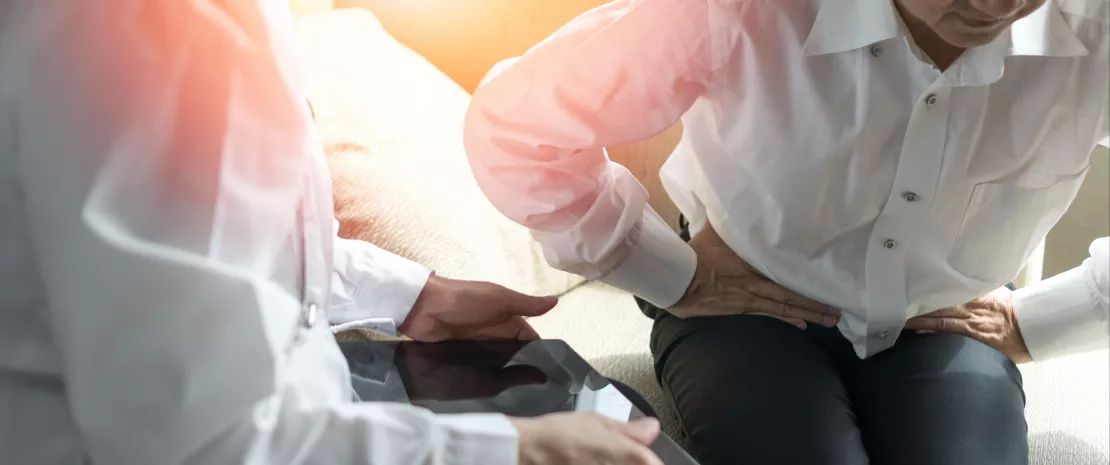Each subtype of Irritable Bowel Syndrome (IBS) has its own dysbiosis
Doctors receive patient after patient with IBS, and all cases are different. Some have diarrhea, some have constipation, and some have no problems with their bowel transit. A study1 has demonstrated specific characteristics of the gut microbiota in three subtypes of IBS and its links to depression and diet. This has paved the way for a more accurate stratification and optimized management of IBS patients.
Lay public section
Find here your dedicated section
Sources
This article is based on scientific information

About this article
Irritable bowel syndrome (IBS) is a functional disorder caused by multiple factors and in which dysbiosis of the gut microbiota plays an important pathophysiological role. It is associated with a higher prevalence of depression, emphasizing a pathogenesis that involves disturbance of the gut-brain axis. The Rome IV classification distinguishes 4 subtypes of IBS: diarrhea-predominant (IBS-D), constipation-predominant (IBS-C), mixed-type (IBS-M) and unclassified (IBS-U). While dietary factors appear to aggravate IBS symptoms, dietary interventions that modulate gut microbiota, such as the low FODMAPs diet, can actually alleviate them. Nonetheless, we would gain a lot from better understanding the links between gut microbiota, depression and diet in these different subtypes of IBS.
Each IBS subtype has its own signature
Chinese researchers used data from the American Gut Project to match 942 subjects with different IBS subtypes (IBS-D, IBS-C, IBS-U) with 942 control subjects of similar age, sex, BMI, geographic origin and diet. On comparing their gut microbiota, they found that bacterial diversity in subjects with IBS-D and IBS-U was lower than in the control subjects. While there were lower levels of certain genera in all IBS subjects, such as Bifidobacterium and Faecalibacterium, this trend was reversed in the case of others depending on the subtype. For example, there were more Subdoligranulum, Dorea and Eubacterium hallii in IBS-D, but less in IBS-C. Amounts of certain opportunistic pathogens, more abundant in IBS subjects than in the controls, also differed according to subtype. The study identified a total of 101 bacterial genera associated with the different subtypes of IBS.
101 bacterial genera associated with the different subtypes of IBS.
Metabolic alterations related to symptoms
The scientists also observed various functional alterations of gut microbiota in IBS subjects depending on the subtype: IBS-D subjects produced more hydrogen sulfide, known to induce diarrhea, while an increase in palmitoleate biosynthesis was demonstrated in IBS-C subjects, the product of which binds to calcium, conductive to stool hardness. In addition, there were fewer beneficial Bifidobacterium, Sutterella and Butyricimonas bacteria in the gut microbiota of subjects with IBS also suffering from depression, and more Proteus, shown in animal studies to damage neurons. The short-chain fatty acid (SCFA) production pathway, a reduction in which has already been correlated with depression, was reduced compared to IBS subjects without depression.
Your IBS Diagnosis Check List
Age, sex, diet: an overview of IBS influencers
In this study, the subjects with the most severe gut dysbiosis were women, younger subjects with IBS-D and older subjects with IBS-C. Certain dietary factors also had a significant impact on the gut microbiota and symptoms associated with IBS. Lactose from milk worsened symptoms and red wine improved symptoms in all subjects with IBS, while examples of foods that tended to normalize gut microbiota included cheese and whole grains in IBS-C subjects, fruit in IBS-D and IBS-C subjects, and eggs in IBS-D subjects.
Combined, these analyses reveal the unique characteristics of gut microbiota associated with different subtypes of IBS. It highlights the importance of taking a personalized approach to gut microbiota modulation to optimize therapeutic outcomes.
Recommended by our community

"That's nice" - Tom Ford (From Biocodex Microbiota Institute on X)








